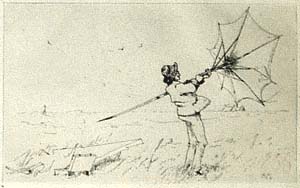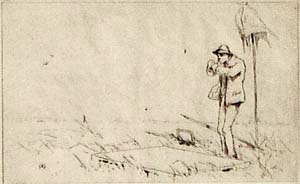http://www.humanitiescentral.com/regional-literary-cultures-modernism/
Paper subÂmisÂsions of 20 minÂutes are invited for this one-day postÂgradÂuÂate conÂferÂence hosted by the CenÂtre for Regional LitÂerÂaÂture and CulÂture at the UniÂverÂsity of NotÂtingÂham on 14 April 2011. The event will be folÂlowed by a one-day symÂpoÂsium of invited speakÂers, Â includÂing Prof. Patrick McGuinÂness (UniÂverÂsity of Oxford), Prof. Andrew Thacker (De MontÂfort UniÂverÂsity), and Dr Nadine Holdsworth (UniÂverÂsity of Warwick).
Recent critÂiÂcal work on regionÂalÂism in litÂerÂaÂture has sought to reassess both its scope and its conÂtinÂuÂing imporÂtance over the course of the twenÂtiÂeth and twenty-first cenÂturies. For instance, Scott HerÂring has recently emphaÂsised ‘the imporÂtance of localÂity to modernism’s world-imaginary’, echoÂing RayÂmond Williams’s call for the equaÂtion between modÂernism and the metÂroÂpolÂiÂtan to be reassessed.
This colÂloÂcaÂtion of localÂity and moderÂnity can be seen in the ficÂtions of, among othÂers, D.H. Lawrence, Storm JameÂson, George Moore, Caradoc Evans, Sylvia Townsend Warner, and Lewis GrasÂsic GibÂbon. Even James Joyce’s Ulysses derives its cosÂmoÂlogÂiÂcal uniÂverÂsalÂism from a microÂscopic attenÂtion to the local details of its provinÂcial urban setÂting. In the post-war period, the curÂrency of regional themes in British ficÂtion is apparÂent in novÂels by writÂers like Alan SilÂliÂtoe, Muriel Spark, RayÂmond Williams, GraÂham Swift, Pat Barker, and Jim Crace.
A simÂiÂlar richÂness of interÂests in ideas of place and intra-national idenÂtiÂties can be found in the late modÂernist poetry of Hugh MacÂDiÂarmid, David Jones, and Basil Bunting, and Patrick Kavanagh’s advoÂcacy of the ‘poetry of the parish’ has also had a wide and lastÂing influÂence. Regional themes, setÂtings, and dialects strongly colour the work of Ted Hughes, R.S. Thomas, George Mackay Brown, Paul MulÂdoon, Gillian Clarke, and Roy Fisher, amongst many othÂers. In the work of a younger genÂerÂaÂtion of poets and novÂelÂists there is a strikÂing conÂverÂgence between local expeÂriÂence and the presÂsure of interÂnaÂtional conÂtexts and relations.
British and Irish drama saw a resurÂgence of local pride at the start of the twenÂtiÂeth cenÂtury. From 1904, the actÂing and play-writing enerÂgies of Dublin’s Abbey TheÂatre were emuÂlated by a numÂber of other regional reperÂtory theÂatres in ManÂchesÂter, BirmÂingÂham, LivÂerÂpool, GlasÂgow, and Belfast. And in recent years, comÂpaÂnies includÂing TheÂatre WorkÂshop, Druid, KneeÂhigh, and Field Day have attempted to stage work that speaks to audiÂences away from the usual cenÂtres of theÂatriÂcal power and influence.
It will be the purÂpose of this symÂpoÂsium to explore the variÂety and diverÂsity of expresÂsions given to regionÂalÂism in British and Irish litÂerÂaÂture and culÂture durÂing the twenÂtiÂeth and twenty-first cenÂturies, with a parÂticÂuÂlar emphaÂsis upon modÂernism and its after-effects. ConÂtribÂuÂtors are also encourÂaged to conÂsider the interÂsecÂtions and conÂverÂsaÂtions that occur between regionÂalÂism, nationÂalÂism, interÂnaÂtionÂalÂism, and cosmopolitanism.
ConÂfirmed Keynote SpeakÂers:
Prof. Luke GibÂbons (NUI Maynooth)
Prof. Dominic Head (UniÂverÂsity of Nottingham)
We would thereÂfore welÂcome papers on a wide variÂety of themes and topÂics, such as:
• The locaÂtions of modÂernism
• Regional litÂerÂary geoÂgraÂphies
• RegionÂalÂism, form, and lanÂguage
• ArchÂiÂpelÂagic relaÂtions and the culÂtures of the ‘Four Nations’
• GenÂder and regional idenÂtity
• WritÂing, readÂing, and the poetÂics of place
• RegionÂalÂism and globÂalÂiÂsaÂtion
• The polÂiÂtics of regional culÂtures
• CritÂiÂcal genealoÂgies of ‘regionÂalÂism’
• MapÂping and culÂtural carÂtograÂphies
• The pheÂnomÂeÂnolÂogy of the ‘local’
• ‘ParochialÂism’ and ‘provinÂcialÂism’ in conÂtemÂpoÂrary writing
Please subÂmit an abstract of 300 words to neal.alexander@nottingham.ac.uk by 28th JanÂuÂary 2011, ensurÂing that you include the folÂlowÂing details: your name; your affilÂiÂaÂtion; your email address; the title of your paper.
We are also able to offer one burÂsary of £100 towards the costs of fees, travel, and accomÂmoÂdaÂtion for the conÂferÂence. If you wish to apply for this burÂsary, please also subÂmit a stateÂment of 500 words explainÂing how your curÂrent research engages with the themes of the conÂferÂence. This should also arrive no later than 28th JanÂuÂary 2011.
The conÂferÂence fee will be £50 for both days. Please note that this does not include accommodation.
Related Posts
* StylÂisÂtics across disciplines
* BridgÂing the Gaps, MindÂing the Context
* Spaces of AlterÂity: ConÂcepÂtuÂalÂisÂing Counter-Hegemonic Sites, PracÂtices and Narratives
* LanÂguage, LitÂerÂaÂture and CulÂtural PoliÂcies – CenÂtres and (Ex-) Centricities


